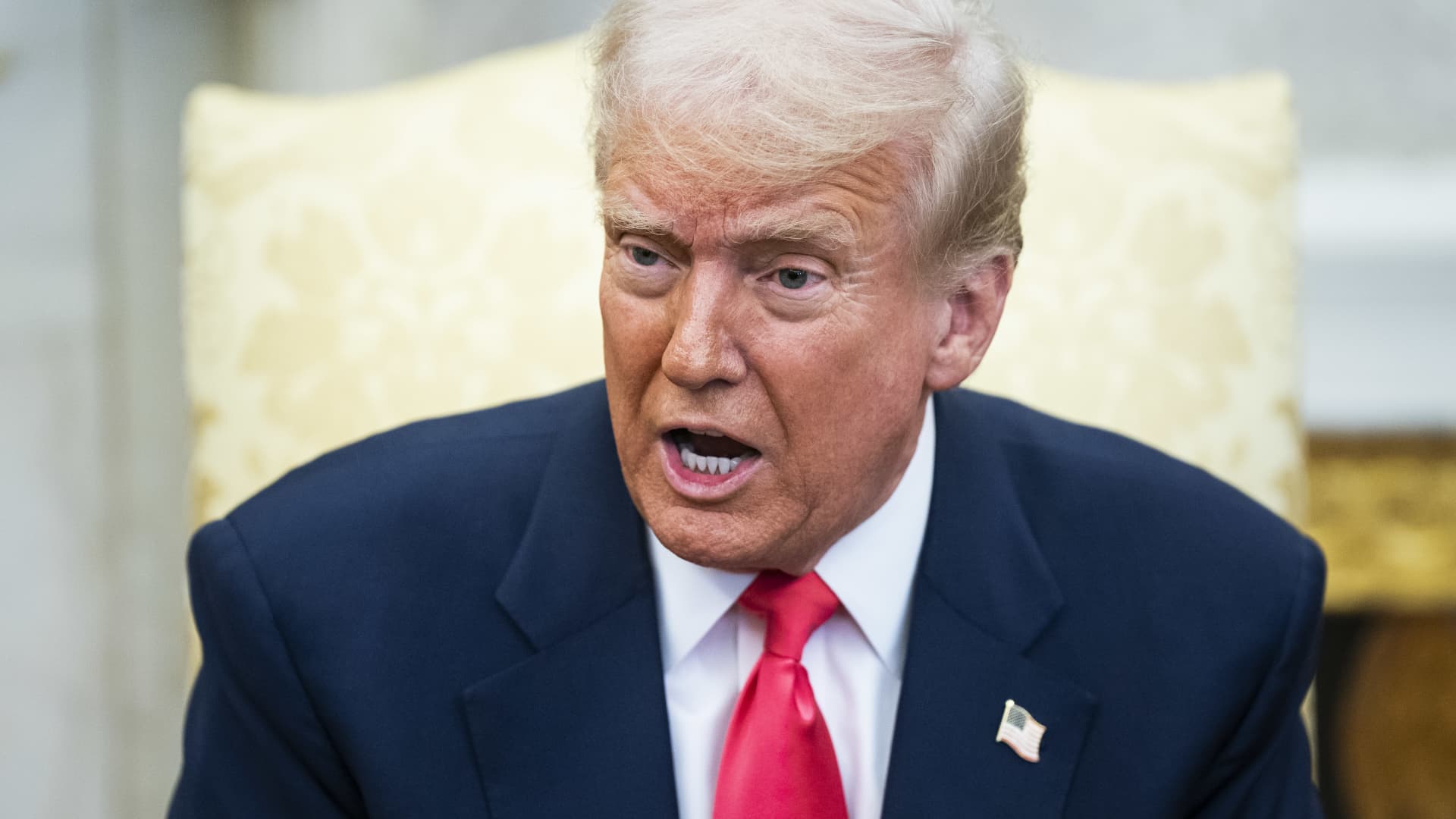Stock Futures Plunge: Tariff Fears Fuel S&P Rout
Editor's Note: Stock futures experienced a significant drop today, raising concerns about the market's stability. This analysis delves into the reasons behind this plunge, focusing on the escalating impact of tariff fears.
Why It Matters: The recent plunge in stock futures, particularly impacting the S&P 500, signals growing investor anxiety. Understanding the drivers behind this volatility is crucial for navigating the current market landscape and making informed investment decisions. This review examines the role of escalating trade tensions, analyzing their effects on market sentiment and potential long-term implications. Keywords such as stock market volatility, trade war impact, tariff effects, and S&P 500 decline are central to this analysis.
| Key Takeaways of Stock Market Plunge | |---|---| | Cause: Escalating trade tensions and renewed tariff fears | | Impact: Significant drop in stock futures, particularly S&P 500 | | Investor Sentiment: Heightened anxiety and uncertainty | | Potential Outcomes: Increased market volatility, potential economic slowdown |
Stock Futures Plunge: A Deep Dive
Introduction: The dramatic decline in stock futures reflects a deepening concern about the global economic outlook, primarily fueled by renewed anxieties surrounding trade tariffs. This section examines the key aspects driving this market downturn.
Key Aspects:
- Escalating Trade Tensions: The ongoing trade disputes between major global economies are the primary catalyst for the current market turmoil. Uncertainties surrounding future trade policies create instability and erode investor confidence.
- Tariff Impact on Businesses: Increased tariffs directly impact businesses by raising the cost of imported goods, reducing profitability, and potentially slowing economic growth. This uncertainty translates into lower valuations for companies heavily reliant on international trade.
- Investor Sentiment: Negative news regarding tariffs and trade wars quickly impacts investor sentiment. Fear and uncertainty trigger sell-offs, leading to the observed market plunge.
- Global Economic Uncertainty: The ripple effects of trade wars extend beyond specific industries, creating broader economic uncertainty. This uncertainty further fuels investor anxiety and contributes to market volatility.
The Role of Tariff Fears
Introduction: The direct link between tariff fears and the recent stock market decline is undeniable. This section explores the facets of this relationship.
Facets:
- Role of Uncertainty: The unpredictable nature of tariff implementations creates significant uncertainty for businesses, making long-term planning and investment decisions exceedingly difficult.
- Examples: Specific industries, like manufacturing and agriculture, are particularly vulnerable to tariff increases. The impact on these sectors directly impacts broader market performance.
- Risks: Continued escalation of trade tensions poses significant risks to global economic growth, potentially leading to a recession.
- Mitigation: Negotiated trade agreements and de-escalation of trade disputes are crucial for mitigating the negative impacts on the stock market. International cooperation is essential.
- Impacts: The impact of tariffs extends beyond the stock market, affecting consumer prices, employment levels, and overall economic stability.
The S&P 500 Rout: A Deeper Analysis
Introduction: The S&P 500's significant decline reflects the broad-based nature of the market's reaction to tariff fears. This section explores further aspects of this specific impact.
Further Analysis: The S&P 500, a key benchmark for the U.S. stock market, serves as a bellwether for overall market sentiment. Its decline signifies a widespread loss of confidence amongst investors. The impact is felt across various sectors, highlighting the systemic nature of the trade war’s effects. This decline underlines the interconnectedness of the global economy and the vulnerability of even seemingly stable markets to external shocks.
Closing: The sharp drop in the S&P 500 underscores the significant impact of trade disputes on global financial markets. The challenge lies in mitigating the risks through effective policy decisions and international cooperation.
| Key Market Indicators (Illustrative Data - Replace with Actual Data)| |---|---| | S&P 500 Futures Change: -X% | | Dow Jones Futures Change: -Y% | | Nasdaq Futures Change: -Z% | | VIX (Volatility Index): +W% |
FAQ
Introduction: This section addresses frequently asked questions about the recent stock market plunge.
Questions:
- Q: What is the primary cause of the stock market decline? A: Escalating trade tensions and tariff fears are the primary drivers.
- Q: How will this affect average investors? A: Increased market volatility can lead to investment losses; careful portfolio management is advised.
- Q: Will this lead to a recession? A: While a recession isn't guaranteed, the prolonged trade uncertainty increases the risk.
- Q: What can governments do to address this? A: Negotiated trade agreements and de-escalation of trade disputes are crucial steps.
- Q: What should investors do now? A: Investors should carefully assess their risk tolerance and diversify their portfolios.
- Q: Are there any positive indicators? A: The situation is fluid; positive developments in trade negotiations could reverse the trend.
Summary: The FAQ section highlights the complex interplay of factors contributing to the market decline and offers guidance for investors navigating this uncertain period.
Tips for Navigating Market Volatility
Introduction: This section provides practical tips for investors to manage their portfolios during periods of heightened market uncertainty.
Tips:
- Diversify your portfolio: Spread your investments across different asset classes to reduce risk.
- Rebalance regularly: Adjust your portfolio allocation to maintain your desired risk level.
- Stay informed: Keep abreast of market developments and economic news.
- Consider defensive investments: Shift towards less volatile assets during periods of uncertainty.
- Avoid panic selling: Emotional decisions often lead to poor investment outcomes.
- Consult a financial advisor: Seek professional guidance for personalized investment strategies.
Summary: These tips emphasize the importance of proactive portfolio management and informed decision-making during periods of market volatility.
Resumen de la Caída del Mercado Accionario
Summary: This article explored the significant decline in stock futures, primarily attributed to escalating trade tensions and tariff fears. The analysis highlighted the impact on investor sentiment, the S&P 500, and the broader global economy.
Mensaje Final: The current market volatility underscores the importance of informed investment decisions and proactive risk management. Staying informed and adapting strategies based on evolving market conditions is crucial for navigating this challenging period.

